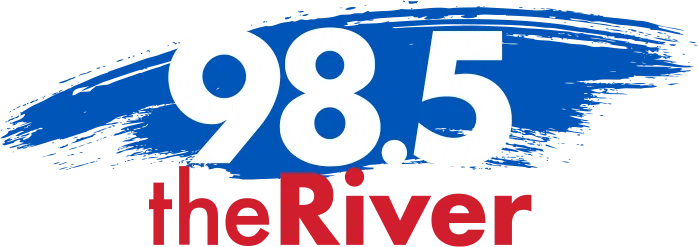By Julie Steenhuysen and Deena Beasley
(Reuters) -Gilead Sciences says it still plans to supply its twice-yearly injection for preventing HIV infection in low-income countries if it wins U.S. approval despite funding uncertainty over the Trump Administration’s pullback in aid spending.
Some AIDS experts, including activists and doctors, say the Gilead drug, lenacapavir, could help end the 44-year-old epidemic that infects 1.3 million people a year and is estimated by the World Health Organization to have killed more than 42 million.
An FDA approval decision is expected by June 19 for lenacapavir, which proved to be nearly 100% effective at preventing HIV in large trials.
If the Food and Drug Administration green lights the drug, and its view is seconded by the WHO, the shots could start to roll out early in 2026 to at least 2 million people in 18 low-income countries based on Gilead’s agreement with the U.S. President’s Emergency Plan for AIDS Relief (PEPFAR) and the Global Fund, a worldwide partnership targeting HIV, tuberculosis and malaria.
Gilead agreed to provide lenacapavir at cost for two-to-three years while six generic drugmakers, which were granted licenses to make the medicine for low-income countries, ramp up production.
Experts said a successful launch of a long-acting HIV prevention drug could help stall the epidemic. Until recently, the only pre-exposure prophylaxis (PrEP) options for people at high risk of infection were daily pills, requiring careful adherence to be effective.
“You can foresee a day where there are no new HIV diagnoses. It doesn’t happen if we only do this in the U.S.,” Gilead Chief Commercial Officer Johanna Mercier said. “We need to make sure we have a global approach to this launch.”
PEPFAR being part of the effort is Gilead’s intent and goal, Mercier said. “Unfortunately, if they’re not part of that mix, our goal is still to meet that objective of 2 million people getting access.”
Wall Street has a close eye on lenacapavir, one of the highest-profile drugs to undergo FDA review since President Donald Trump named Robert F. Kennedy Jr. as health secretary and promised to upend the status quo.
Most of the drug’s profits are expected in the U.S., with annual sales reaching $1 billion by next year, according to analysts’ estimates compiled by LSEG.
‘INCREDIBLE DISMAY’
Whether all of the agreed funding for low-income countries – most of which are in Africa – will come through is unclear. Countries that rely on aid are already reeling from funding cuts by the Trump Administration, including to PEPFAR, and AIDS researchers are bracing for the worst.
The United Nations program on HIV/AIDS earlier this month said many HIV prevention programs supported by PEPFAR were stalled, although services for pregnant and breastfeeding women were technically exempt from the cuts.
Peter Sands, executive director of the Global Fund, told Reuters the group intends to fund as much of the lenacapavir rollout as possible, but it will need to start slowly.
“It’s not just the uncertainty over PEPFAR’s funding that’s an issue, but the uncertainty over our funding,” Sands said, adding that the group’s first priority is treating people already infected with the deadly virus.
Much will depend on the success of the Global Fund’s effort to raise $18 billion to fund its work from 2027-2029. The U.S. is its largest donor, committing $6 billion in the previous funding round. It is unclear what the U.S. may provide this round, or whether other big governments will step up.
UNAIDS estimates that the permanent discontinuation of HIV prevention and treatment programs supported by PEPFAR would lead to an additional 6.6 million new HIV infections between 2025 and 2029.
The U.S. State Department, which oversees PEPFAR, did not respond to a request for comment.
Gilead declined to comment on its manufacturing cost for lenacapavir, whose U.S. price is likely to be on par with current preventive medications at around $25,000 per year. ViiV Healthcare’s Apretude, an injection given every two months, costs about 124.20 pounds ($168) in low- and middle-income countries.
Mitchell Warren, executive director of the AIDS nonprofit AVAC, estimates the eventual annual cost at $100-$120. The lower the price, the more people who could receive it, he said.
Warren said PEPFAR could still participate, and others may come forward. The Gates Foundation and the Children’s Investment Fund Foundation are “actively involved in all of these conversations,” he said, as is the Elton John AIDS Foundation.
Linda-Gail Bekker of the University of Cape Town, who led lenacapavir clinical trials in South Africa and Uganda, said she was elated when she first saw the findings.
“The huge feeling I have now is one of incredible dismay,” said Bekker of uncertainty over the Trump administration’s commitment to PEPFAR and HIV prevention in poor nations.
“It felt like the stars were aligning, and one of the stars has fallen out of the sky.”
(Reporting by Julie Steenhuysen in Chicago and Deena Beasley in Los Angeles; additional reporting by Jennifer Rigby in London; editing by Caroline Humer and Bill Berkrot)





Comments